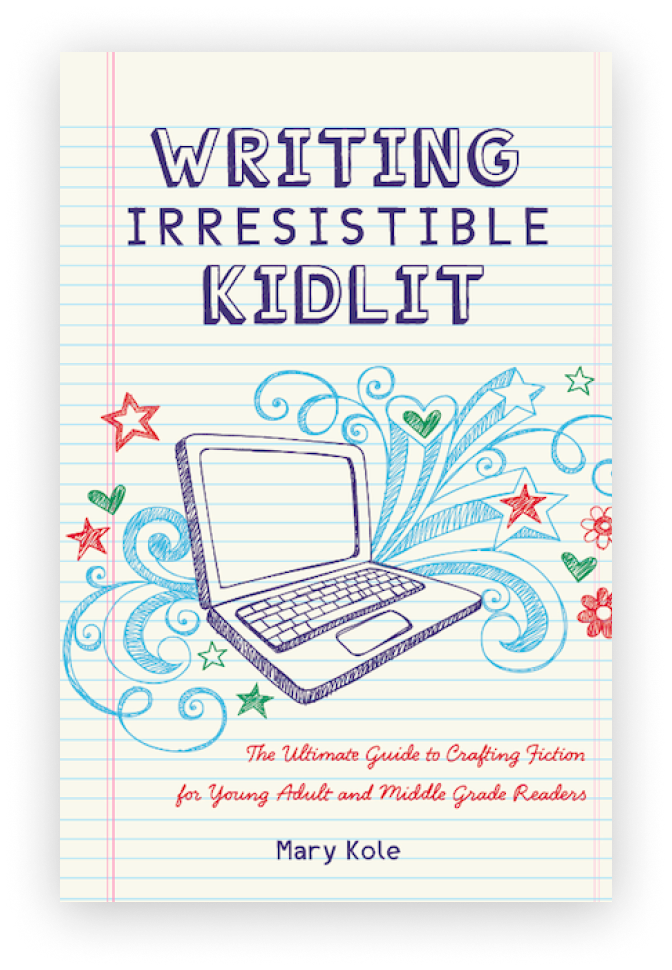Writing Your Lived Experience
By Mary Kole
Mary Kole is a former literary agent, freelance editor, writing teacher, author of Writing Irresistible Kidlit, and IP developer for major publishers, with over a decade in the publishing industry.
Aspiring writers are often told to write what they know, but what does that really mean? For some, it means writing about their own lived experience. For others, it means researching a topic extensively to gain knowledge and understanding. But what about writing outside of your own lived experience? You may have heard some chatter about this issue in today’s publishing industry. It's a controversial topic in the writing world, but one worth exploring. In this article, I’ll discuss the importance of using lived experience in your writing, while also addressing how to balance it with research and respecting other writers' and people’s experiences as well.
The Benefits of Writing Your Lived Experience
One of the biggest advantages of writing about your lived experience is the authenticity it brings to your writing, especially when we talk about character development. Drawing from personal experiences can make your characters and settings feel real and relatable to readers, especially if you follow the adage of “write what you know.” Using lived experience in your work can also be cathartic for the writer, as writing can be therapeutic in many ways. Additionally, writing about personal experiences can give voices to marginalized communities and bring attention to important issues, giving diverse creators a seat at the table of the publishing world, that has historically been denied to them.
Writing Outside Your Lived Experience
While writing about your own lived experience can be powerful, there may be times when you want to step out of your lived experience and write a character from a different demographic background, gender identity, or racial profile than something you claim for yourself. Writers often want to explore characters and experiences that are vastly different from their own. However, this can be a tricky subject, as it can lead to cultural appropriation and misrepresentation. It's essential for writers to do thorough research and consult with a sensitivity reader (or several) to ensure that their writing is respectful and accurate. Some writers, readers, and publishing gatekeepers like literary agents and acquiring editors state that they will only represent perspectives told from lived experience. They don’t want to take opportunities away from marginalized creators. This is a current publishing industry trend, and is not going away anytime soon. It’s something to be aware of if you are writing outside of your demographic profile.
Balancing Lived Experience with Research
Even when writing within your own lived experience, research is often necessary to create a compelling and well-rounded story. Research can help fill in gaps in your knowledge, provide details that will make your storytelling more authentic, and challenge any preconceived notions you may have. It's important to research with intention and purpose, and to use your lived experience as a lens through which you view your research. Often, the combination of both outside research and lived experience can help create a relatable character who is also grounded in truth.
Use Lived Experience as a Springboard for Story
The world needs diverse stories from diverse voices, and each writer will have different lived experience to draw from. Some human experiences are universal, while others are very specific to individual lives, cultures, and backgrounds. It's important to use your own lived experience as a springboard for your writing, while also respecting other writers' experiences. It's not a matter of "taking away" opportunities from other writers, but rather expanding the range of stories we have access to.
Using your lived experience in your writing can be incredibly powerful and transformative. It can bring authenticity to your stories, give voice to marginalized communities, and provide a therapeutic outlet to you, the writer, when you make sense of your lived experience through story. However, it's important to approach writing outside of your own lived experience with respect and sensitivity, and to balance lived experience with research. By doing so, you can create stories that are authentic, respectful, and impactful.

Click here to purchase Writing Irresistible Kidlit, my book on fiction craft for MG and YA novels, out from Writer's Digest Books. This will show you my writing craft philosophy and give you lots of valuable advice, including tips for the novel revision process and self-editing. There are over 35 example novels cited and discussed throughout. It’s a valuable resource for any writer’s toolkit.
Click here to purchase Irresistible Query Letters, my book on query letters, including over forty examples with comprehensive notes on each one. There’s a ton of submission advice, best practices, and insider information in these pages, and you’ll really enjoy seeing what other writers are doing in the slush.




